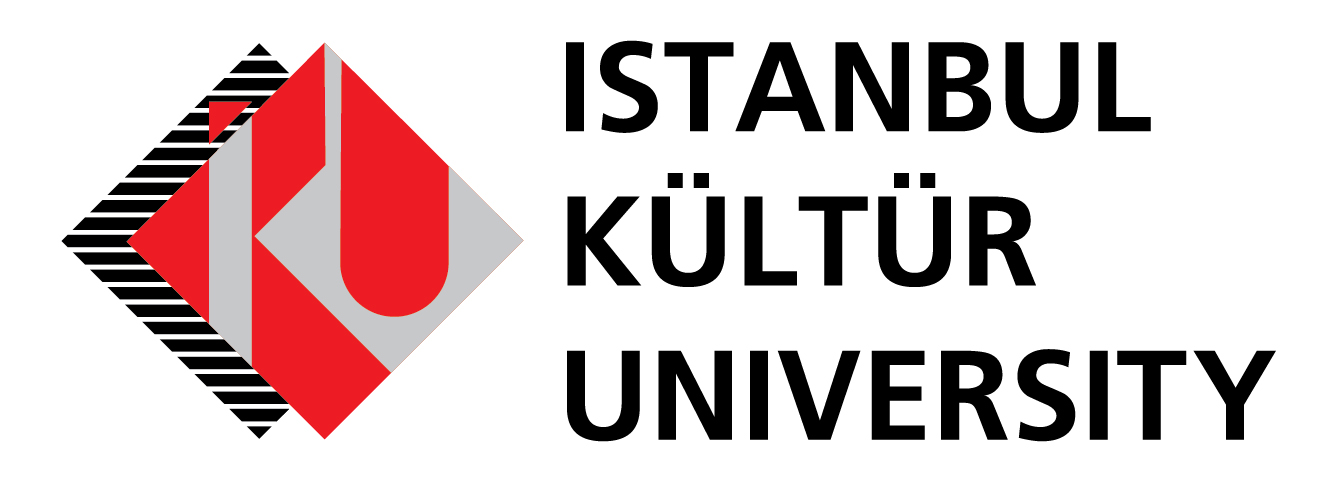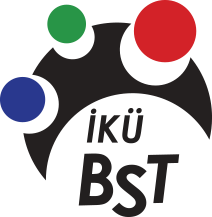The Erasmus Staff Mobility activity allows academic staff working in higher education institutions that have ECHE to work in other higher education institutions that have ECHE in other European countries for a maximum period of 6 weeks on condition that they provide a minimum of 8 hours of teaching per week within 1 academic year; alternatively, it also allows academic staff, administrative staff and personnel working in the enterprises to offer/receive education in higher education institutions or enterprises that have ECHE.
The Erasmus Staff Mobility activity is divided into 2 sub-activities:
- Staff Mobility for Teaching Assignments (STA)
- Staff Mobility for Staff Training (STT)
Durations of Staff Mobility
- Activities shall be carried out in accordance with the minimum and maximum durations set by the European Commission.
- Staff mobility activities cannot exceed the end date of the contract signed with the Center.
Staff Mobility for Teaching
Staff mobility for teaching is an activity which allows staff who are obliged to teach in a higher education institution with ECHE in Turkey to teach in another higher education institution with ECHE in one of the partner countries and carry out joint academic/educational activities with that institution.
The staff teaching activity is a daily activity and grants are provided for the days lectures are given. For this reason, the daily teaching program must be specified in the Staff Mobility For Teaching - Mobility Agreement.
Targets:
- To allow students who cannot participate in the mobility program to benefit from the knowledge and experience of the academic staff of higher education institutions in different European countries.
- To promote the exchange of expertise and experience through pedagogical methods.
- To encourage higher education institutions to expand and enrich the variety and content of the courses they offer.
In order to benefit from the Teaching Mobility activity, there must be an agreement between the institutions.
Minimum and Maximum Durations of Staff Mobility for Teaching
The activity period for the staff mobility for teaching is a minimum of 2 workdays excluding travel and a maximum of 2 months. In addition, the activity has to comprise a minimum of 8 hours of teaching in order to be considered as a valid activity. For teaching activities that will last for more than one week, the minimum teaching hours must be extended in proportion to the duration (For example, 16 hours of teaching is required for a 2-week activity, and 8 hours of teaching is required for a 1-week activity.)
If it is observed in the confirmation of participation that the teaching activity lasted less than 2 days and/or the teaching hours were less than the minimum requirements, the activity is considered void and the grant payment will not be made for the related activity.
Staff Mobility for Training
Staff mobility for staff training is an activity which allows the staff employed in a higher education institution with ECHE in Turkey to receive training in one of the partner countries. Within this activity it is possible to take part in various trainings (such as on-the-job trainings, observation processes) in order to improve present skills relevant to his/her current job. Conference participation is not supported within the scope of the activity.
As part of Staff mobility for staff training, the staff employed in a higher education institution with ECHE can also go to a higher education institution or an enterprise with ECHE. The enterprise where the participant will go for training can be a training center, a research center, a higher education institution or any other organization abroad that fits the definition of an enterprise. In this context, an appropriate enterprise means any enterprise engaged in any kind of economic activity including private and public-owned institutions and social economies, regardless of their size, legal status and economic sector in which they operate. Staff training is a full-time activity and grants are paid for full-time training. For this reason, the training program must be specified on a daily basis in the Staff Mobility For Training Mobility Agreement.
An agreement between institutions is not required for the Staff Mobility For Training activity.
Minimum and Maximum Durations of Staff Mobility for Training
The period of the staff mobility for training is a minimum of 2 workdays excluding travel and a maximum of 2 months.
If it is seen in the confirmation of participation that the training activity lasted less than 2 days, the activity is considered void and the grant payment will not be made for the related activity.
Application Process
The selection of individuals to participate in the staff mobility activity shall be carried out by a board determined by the Rectorate of Istanbul Kültür University by taking into consideration the Annual Call for Proposals of the European Union Commission and the national priorities determined annually by the National Agency.
The application deadline for the 2019-2020 Academic Year is October 18, 2019
The following steps must be followed during the application:
- The application form for Erasmus+ Staff Mobility must be completely filled out.
- The teaching program and training program must be completely filled out.
- The approval sections included in the Education and Training Plans must be completed and signed by the relevant authorities (Dean, Head of Department, and/or Director, Head of Unit and Contact Person of partner institution). All signature sections must be filled out.
- An invitation from the partner institution (e-mail is accepted)
Following the steps above, the Training or Business Plan and the Institution's Invitation Letter must be delivered to the International Relations Office within the application period.
Application Documents:
- Application Form
- Erasmus Teaching Mobility Form
- Erasmus Training Mobility Form
- Letter of Invitation/Acceptance
- Permission Letter from the affiliated (academic or administrative) unit
Evaluation Criteria
Academic and Administrative Staff applying to Erasmus + Staff Mobility are evaluated according to the following criteria.
Puanlama Sistemi:
| For those who have not participated in a mobility activity before | 30 points | |
| For those who have participated in a mobility activity before | 1 time | 25 points |
| 2 time | 20 points | |
| 3 time | 15 points | |
| 4 time | 10 points | |
| 5 time | 5 points | |
| 6+ time | 0 points | |
| For those who apply from a department/unit which has not been included in a mobility activity before | 25 points | |
|
For those who apply to go to an institution with a mobility activity that they have previously applied but did not go to |
1 time | 15 points |
| 2 time | 10 points | |
| 3 time | 5 points | |
| 4 time | 0 points | |
|
Corporate priorities 1. If the staff applying for the Teaching Mobility activity is the Erasmus Faculty/Department/Vocational School Coordinator; +5 points |
20 points | |
| If the teaching/business plan equals the expected value | 10 points | |
| *Intended for informative purposes only. | ||
WHAT TO DO BEFORE MOBILITY
Documents to be Prepared Before Staff Mobility
- A grant contract (information about a Euro Account at İşbank must be shared with the IRO)
- A version of the Teaching/Training Plan approved by the parties
- A visa letter (It must be submitted to IRO if required.)
- The Certificate of Attendance is taken to be signed by the partner institution.
The grant awarded to staff benefiting from staff mobility serves as contribution and is not intended to cover all expenses abroad.
The amount of daily grants that will be given to the personnel who will benefit from Erasmus staff mobility is calculated based on the amounts indicated in the table below according to the time of travel and the country of destination.
The amounts shown in the table are Euro denominated. (Travel charges excluded)
| COUNTRY GROUPS |
COUNTRIES | Monthly Grant (€) |
| Group A | United Kingdom, Denmark, Finland, Ireland, Sweden, Iceland, Liechtenstein, Luxembourg, Norway | 153 |
| Group B | Germany, Austria, Belgium, France, Cyprus, Netherlands, Spain, Italy, Malta, Portugal, Greece | 136 |
| Group C | Bulgaria, the Czech Republic, Estonia, Croatia, Latvia, Lithuania, Hungary, Macedonia, Poland, Romania, Slovakia, Slovenia, Turkey | 119 |
The highest daily/weekly grant amount that can be paid to the participants is calculated based on the days specified in the teaching/training program, including travel days that are not included in the days of mobility, but not more than 2 days.
Daily/weekly grants offered to the staff include accommodation, food, communication, local travel and insurance expenses. No additional payments are made for these expenses.
- Staff members that benefit from Erasmus Staff mobility must certify their mobility with the certificate of attendance. If the activity day falls on a weekend, that day must be indicated in the teaching/training plan.
- No grant payment will be made for days that do not involve any activity or are not documented as academic/educational activities jointly carried out with the partner institution.
Travel expenses will be calculated on a distance basis, unlike the previous program. The distance calculator prepared by the European Commission will be used. The grant amounts based on distance are listed below.
- For travel distances between 10 and 99 KM: EUR 20 per participant
- For travel distances between 100 and 499 KM: EUR 180 per participant
- For travel distances between 500 and 1999 KM: EUR 275 per participant
- For travel distances between 2000 and 2999 KM: EUR 360 per participant
- For travel distances between 3000 and 3999 KM: EUR 530 per participant
- For travel distances between 4000 and 7999 KM: EUR 820 per participant
- For travel distances between 8000 KM and more: EUR 1500 per participant
Sample of Grant Calculation:
The maximum daily/weekly grant to be awarded to a participant who completes at least 8 hours of teaching in Rome, Italy, including 5 days of teaching mobility and 2 days of travel (round-trip) is calculated over 7 days.
- The grant amount for 7 days: 136*7 = €952 grant is paid.
- The distance between Istanbul and Rome is calculated by the distance calculator. The travel support for 1371,35 km is €275 according to the distances stated above.
- The participant is given a total of €1227 including a €952 grant and €275 travel support.
These grant amounts will be used for visa expenses. An extra grant is not provided for visa expenses.
The grant amount to be calculated based on the rules stated above is paid in two installments. 80% of the amount calculated according to the daily amount before mobility and the total amount calculated for travel is paid at once; if the staff member completes the required documents after the mobility, 20% of the gross amount calculated according to the daily amount is paid.
All or some of the grant payments made to staff who do not fulfill the mobility rules may be reduced.
Salaries and Obligations Related to Staff Mobility
- Participants continue to receive their salary in Turkey during the period spent abroad as part of the Erasmus staff mobility.
- The period spent abroad as part of staff mobility is within the scope of normal service and does not require any additional obligations.
- The staff who go abroad under the Erasmus staff mobility will not receive a travel allowance or a daily wage from their institution.
Additional Grant for Disabled Participants
For disabled participants, it is possible to receive additional grants to meet their specific needs. Our Office must be informed in case of such a need.
WHAT TO DO AFTER MOBILITY
Documents to be Completed After the Staff Mobility;
- The Certificate of Attendance
- Documents showing travel dates (such as flight cards, passport entries and exits)
- A Staff Report: Staff who benefit from teaching mobility are required to fill in the online EU report (EU Survey). (The report is sent online.)
The documents mentioned above must be delivered to the IRO within 2 weeks after mobility.
The remaining 20% of the grant will not be paid to those who do not deliver the mobility documents.
The mobility of staff who cannot prove their mobility may be canceled and they may be asked to return all grant payments.


